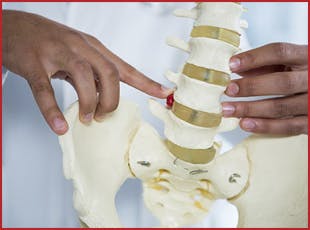Let’s talk about what no one ever talks about. Pelvic health issues in both men and women are very common and not often talked about. You are not alone. Many people suffer without realizing that there are effective treatment solutions.
Common Pelvic Health Issues We Can Treat
Here are some of the most common pelvic health issues that can be treated by a physiotherapist with specialized training in pelvic health physiotherapy:
- Incontinence: leaking of urine or feces
- Urgency: a strong urge to urinate or defecate
- Urinary Frequency: having to urinate often through the day or night so that it disrupts your routine
- Pelvic- area pain: pain, burning, pressure or pins and needles in the pelvic region
- Painful intercourse (Dyspareunia)
- Pelvic Organ Prolapse: a descent of pelvic organ(s) into the vaginal area that can create heaviness or pressure
- Nocturia: awakening frequently at night to urinate
- Pain in the vaginal area (Vulvodynia, Vestibulodynia)
- Interstitial Cystitis
- Persistent genital arousal disorder (PGAD)
- Endometriosis
- Pain in the tailbone (coccydynia)
- Lower back pain
- Sacroiliac Pain (SI Joint)
- Male pelvic health issues: post-prostatectomy incontinence, chronic prostatitis)
- Pre-Natal care
- Post-partum care: assessment for a diastasis recti, incontinence, prolapse, scar tissue assessment, proper use of Kegel exercises, proper return to activity
Physiotherapists must take advanced training to work in this area and be rostered by the College of Physiotherapists of Ontario. A Cochrane Review in 2010 concluded that Physiotherapists who have advanced training in pelvic floor rehabilitation (using internal examination to teach the exercises) should be the first line of defense for stress, urge and mixed incontinence in women.
Your Partner in Pelvic Health
Elevation Physiotherapy & Wellness is an excellent place to start addressing your problem. Many people have heard of Kegel exercises, but they are not appropriate for everyone and many people perform them incorrectly. It is very important to seek care from an experienced clinician trained in this area, who can do an internal exam to assess your muscle strength and look at other tight or weak tissues that contribute to your problem. Internal palpation is the gold standard of care, and we are sensitive to the fact that it can be difficult for some people to be comfortable with this. We will discuss our plan of action with you before initiating treatment.
At Your First Appointment
We will send you a form for you to describe your issue and return prior to being seen for your first appointment. This completed form allows the physiotherapist to effectively prepare further questions and plan what to focus on first.
Your physiotherapist will need a very detailed history of your issue, and will then start a physical examination of the joints, muscles and connective tissue of your pelvis, lower back and hips. Most of the time, this assessment will include an internal exam to evaluate the pelvic floor muscles and other tissues in that area, since these muscles are only accessible internally. If an internal exam can’t be tolerated initially, we can start treatment by focusing more externally and progress to internal work as you can.
On the initial visit, you’ll spend about one hour with your physiotherapist, and together you will discuss your goals of treatment and devise a plan to get there!
Your Pelvic Health Treatment
Your treatment will include education about your problem, and may also include manual therapy (hands-on work by your Physiotherapist), and performance of specialized exercises designed to help with pelvic floor problems. Some people may benefit from a muscle stimulation machine to help you get your pelvic floor muscles functioning properly, or a biofeedback machine to ensure proper contraction and relaxation of the pelvic floor muscle group.
You Will Have Homework!
At Elevation Physiotherapy & Wellness, we will devise a personal home program for you to work on daily between appointments to efficiently address your concerns. It will not take you more than 10 minutes at a time, and practicing these focused exercises regularly will allow for progressions to be made each time you see your Physiotherapist.
Contact Us to Book an Appointment
If you’re suffering from pelvic pain or a pelvic health issue, we’d love to provide the treatment you need! Please contact our office to book your first appointment, or simply fill in our form and we’ll get in touch with you.



